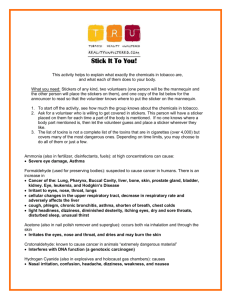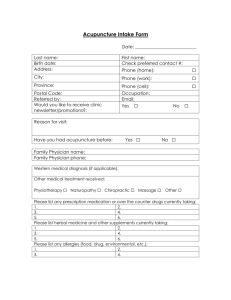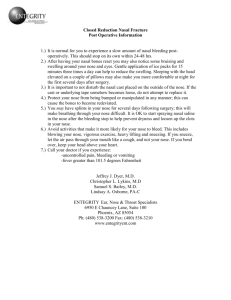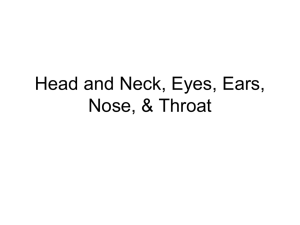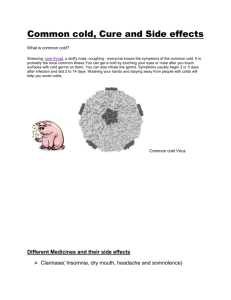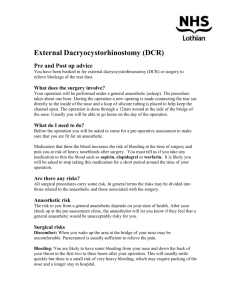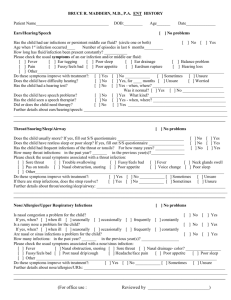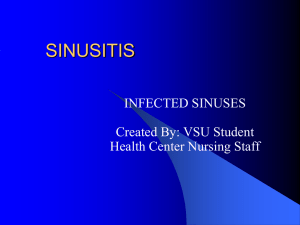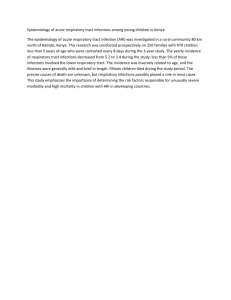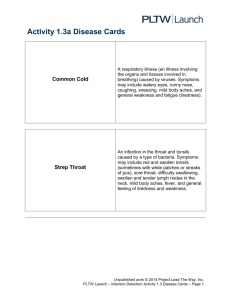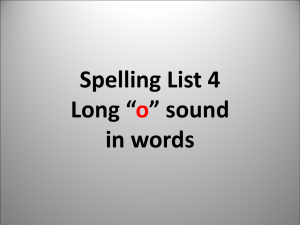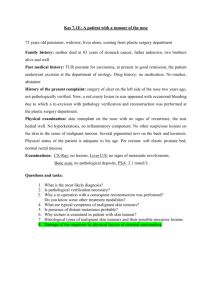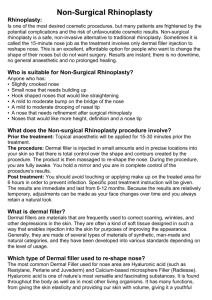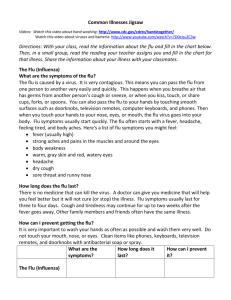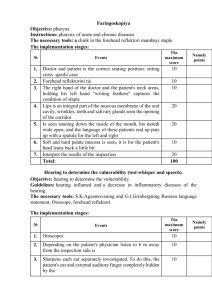Acute Upper Respiratory Tract Infections
advertisement
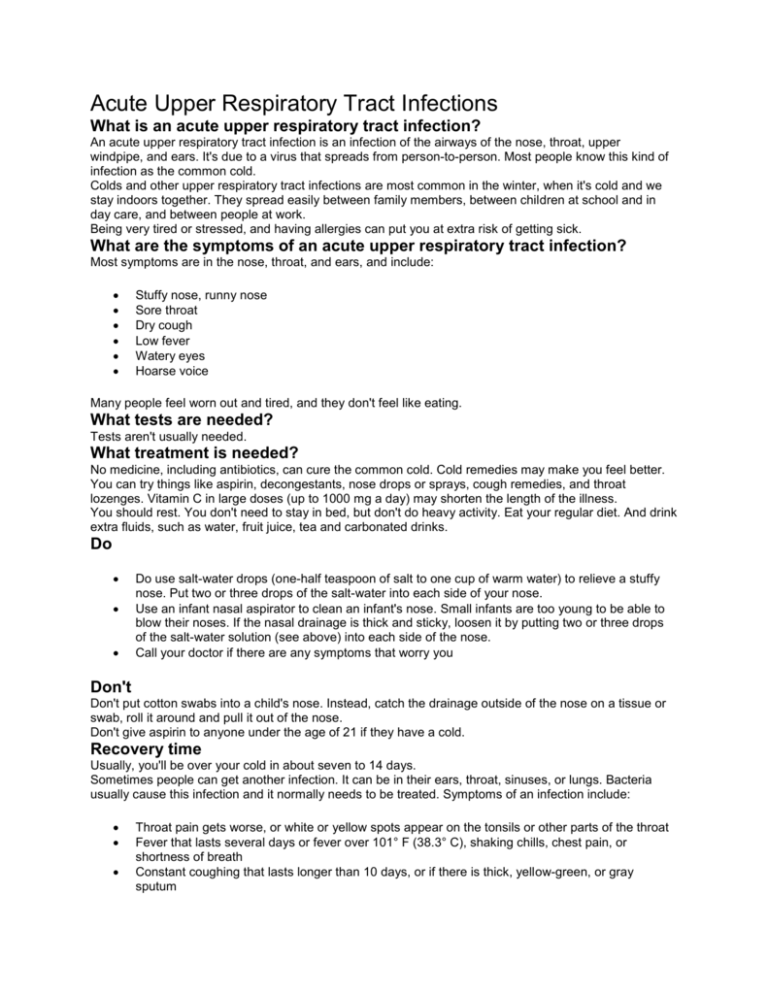
Acute Upper Respiratory Tract Infections What is an acute upper respiratory tract infection? An acute upper respiratory tract infection is an infection of the airways of the nose, throat, upper windpipe, and ears. It's due to a virus that spreads from person-to-person. Most people know this kind of infection as the common cold. Colds and other upper respiratory tract infections are most common in the winter, when it's cold and we stay indoors together. They spread easily between family members, between children at school and in day care, and between people at work. Being very tired or stressed, and having allergies can put you at extra risk of getting sick. What are the symptoms of an acute upper respiratory tract infection? Most symptoms are in the nose, throat, and ears, and include: Stuffy nose, runny nose Sore throat Dry cough Low fever Watery eyes Hoarse voice Many people feel worn out and tired, and they don't feel like eating. What tests are needed? Tests aren't usually needed. What treatment is needed? No medicine, including antibiotics, can cure the common cold. Cold remedies may make you feel better. You can try things like aspirin, decongestants, nose drops or sprays, cough remedies, and throat lozenges. Vitamin C in large doses (up to 1000 mg a day) may shorten the length of the illness. You should rest. You don't need to stay in bed, but don't do heavy activity. Eat your regular diet. And drink extra fluids, such as water, fruit juice, tea and carbonated drinks. Do Do use salt-water drops (one-half teaspoon of salt to one cup of warm water) to relieve a stuffy nose. Put two or three drops of the salt-water into each side of your nose. Use an infant nasal aspirator to clean an infant's nose. Small infants are too young to be able to blow their noses. If the nasal drainage is thick and sticky, loosen it by putting two or three drops of the salt-water solution (see above) into each side of the nose. Call your doctor if there are any symptoms that worry you Don't Don't put cotton swabs into a child's nose. Instead, catch the drainage outside of the nose on a tissue or swab, roll it around and pull it out of the nose. Don't give aspirin to anyone under the age of 21 if they have a cold. Recovery time Usually, you'll be over your cold in about seven to 14 days. Sometimes people can get another infection. It can be in their ears, throat, sinuses, or lungs. Bacteria usually cause this infection and it normally needs to be treated. Symptoms of an infection include: Throat pain gets worse, or white or yellow spots appear on the tonsils or other parts of the throat Fever that lasts several days or fever over 101° F (38.3° C), shaking chills, chest pain, or shortness of breath Constant coughing that lasts longer than 10 days, or if there is thick, yellow-green, or gray sputum Trouble breathing between coughing bouts, or a dusky blue or gray color to lips, skin, or nail beds Earache Skin rash Pain in the teeth or over the sinuses Painful and swollen neck glands Headache Unusual sleepiness, being irritable or confused If these symptoms develop, your doctor can advise on treatment. Sometimes, infants won't drink enough fluids when they are sick. This can be very serious. Call your doctor right away if an infant won't bottle-feed or breast-feed. What can be done to stop it from happening again? To prevent spreading a cold to others, or from getting one yourself, try to stay away from people who already have a cold. They can easily spread their illness in the first two to four days. Wash your hands often, especially after blowing your nose or before handling food. Eat a well-balanced, healthy diet with plenty of citrus fruits and other sources of vitamin C. Reproduced with permission from PDxMD - Clinical Information for Quality Care - www.pdxmd.com
